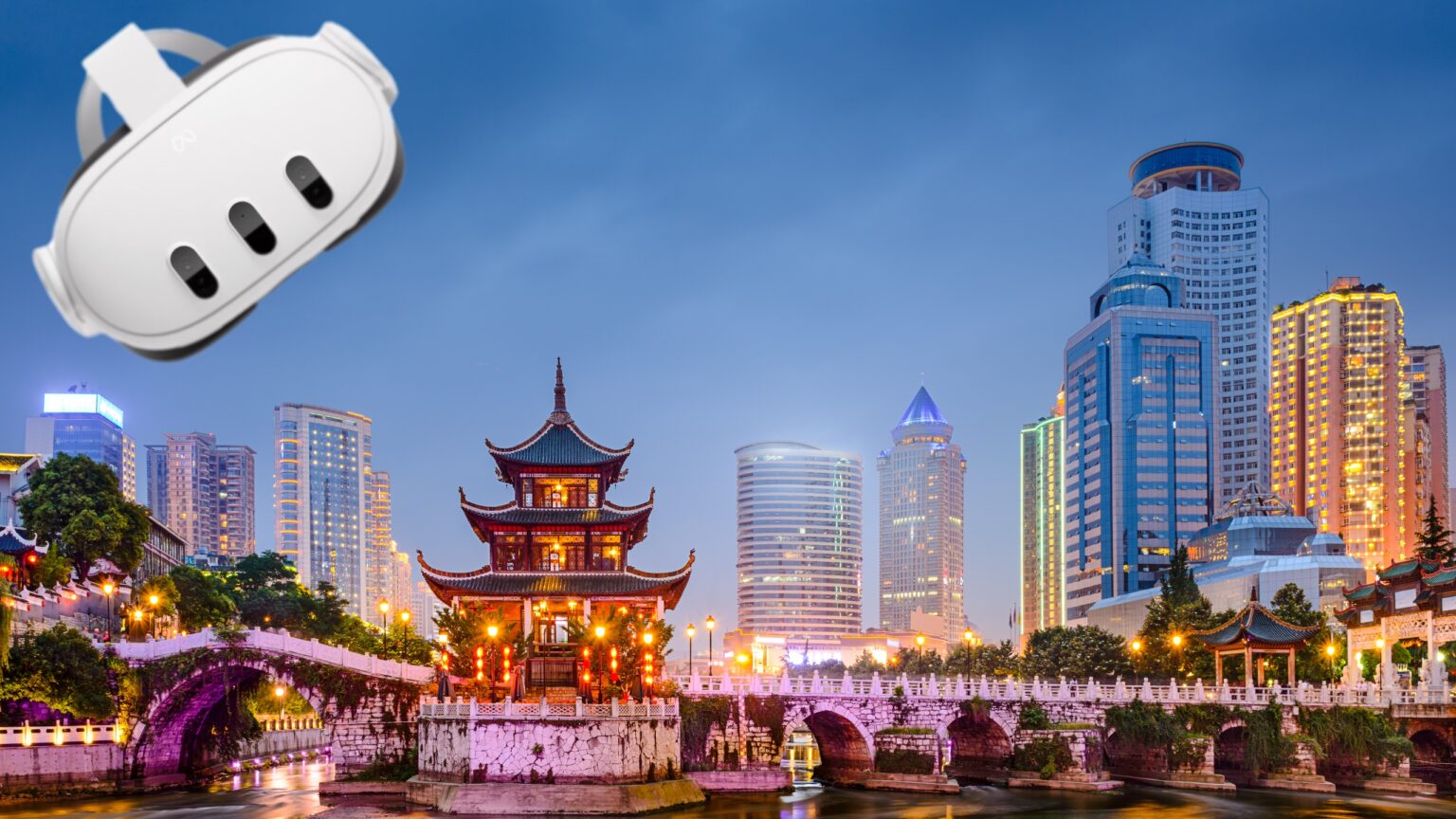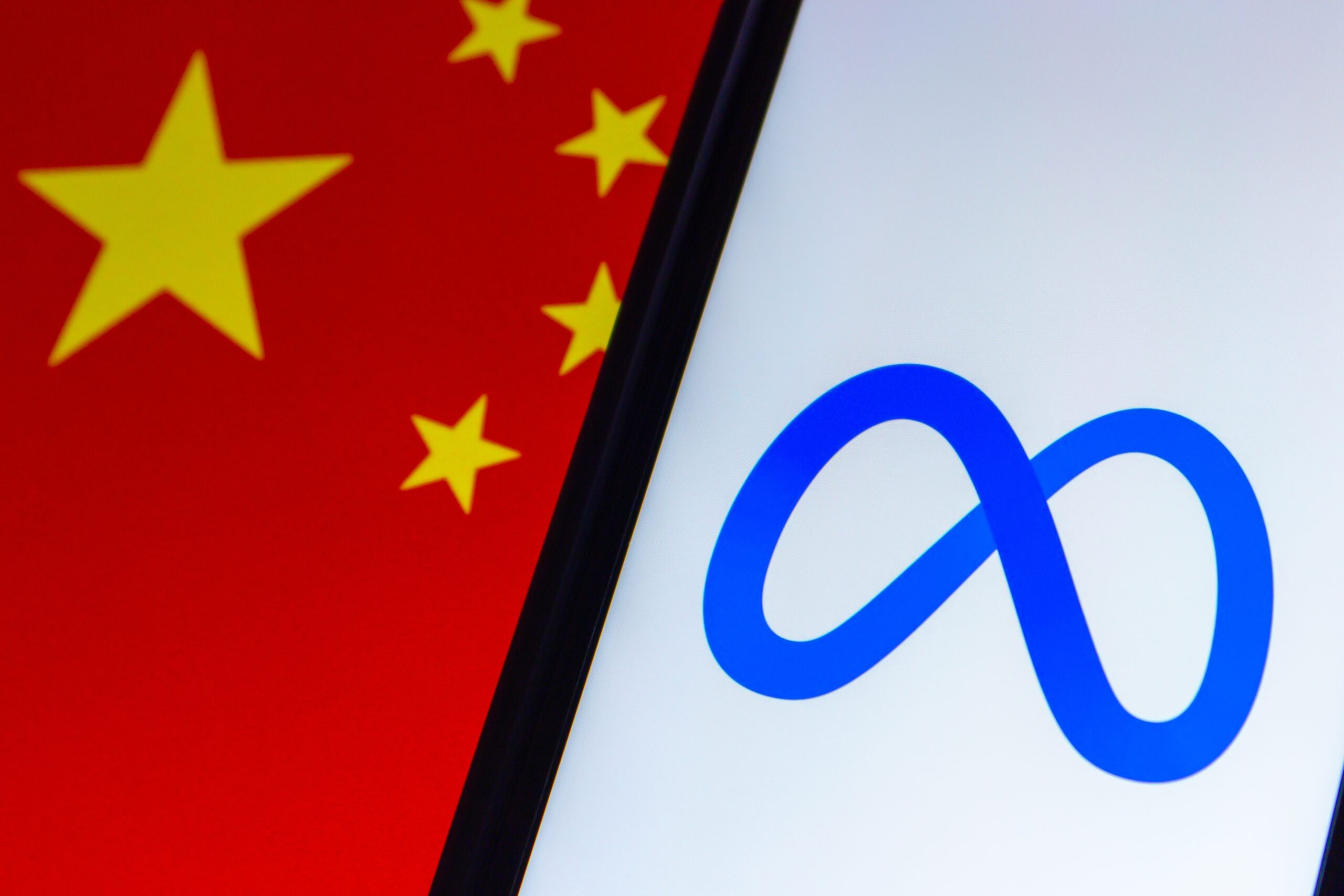Meta Platforms Inc. partners with Tencent Holdings Ltd., planning a strategic re-entry into China with a budget VR headset.
After a long hiatus, Meta Platforms Inc. has crafted a comeback into the Chinese market, striking a key deal with Tencent Holdings Ltd. to introduce a new, cost-friendly virtual reality headset. This move comes 14 years after Facebook’s banishment, as Meta shifts focus from social media to advanced VR technology in China.
META STRIKES DEAL TO RETURN TO CHINA AFTER 14 YEARS$META has struck a preliminary deal to sell a new, lower-priced version of its virtual-reality headset in China 🇨🇳
The agreement with Tencent $TCEHY will make it the exclusive seller of Meta’s headsets in China – WSJ
— Evan (@StockMKTNewz) November 10, 2023
A Fresh Start with Tencent: Meta’s Strategic Move
In a bold strategy to penetrate the world’s largest gaming market, Meta has teamed up with Tencent, aiming to stir local demand with its affordable VR headgear. Late 2024 will witness the launch of this headset, explicitly designed to appeal to Chinese consumers. But the question arises: Will Tencent successfully navigate China’s stringent regulatory landscape to bring Meta’s vision to life?
Per WSJ reports, the new device diverges from Meta’s higher-end Quest models, opting instead for less expensive lenses to maintain cost-effectiveness while promising high-quality graphics. The deliberate pricing and feature adjustments highlight Meta’s flexible market approach, adapting to various consumer bases globally.
Also read: Meta Touts Metaverse Reality as Apple Prepares Vision Pro VR Headset
The Sino-U.S. Tech Tug of War
Meta’s collaboration with Tencent unravels amidst escalating tensions between China and the U.S. over technology exports. The partnership is a testament to both companies’ resilience, finding common ground despite political and economic headwinds. With the U.S. imposing export curbs and China’s historically tight control over foreign technology, the alliance has sparked curiosity and skepticism alike about its long-term feasibility.
Moreover, Meta’s re-entry is timed with the market’s anticipation of Apple’s upcoming mixed-reality headset. By setting a competitive price point, Meta challenges its rivals and beckons a broader audience to the immersive world of VR beyond gaming enthusiasts and tech aficionados.
Bridging Markets, Blending Technologies
The deal is more than a simple exchange of goods; it’s a strategic partnership where Meta gains from device sales and Tencent gains from content and service revenue. This synergy could propel a more content-rich ecosystem for Chinese users, featuring an array of games and applications from Tencent’s vast portfolio.
But beyond financials and product strategies lies a larger narrative. Meta’s venture into China is critical to asserting its global VR market dominance amidst waning demand and uncertain future projections for the technology. It’s a gamble that could redefine the tech landscape, offering a glimpse into how global tech giants adapt to the Chinese market’s unique demands and restrictions.
However, Meta’s push into China marks a significant pivot from its traditional business models, reflecting its swiftness in pursuing growth opportunities in a dynamic tech landscape. As VR technology evolves, this partnership may herald a new era of digital engagement where geographical borders are less of a barrier and more of a bridge for innovation and exchange.
Will this partnership pave the way for Meta’s products to become household names in China again? Only time will tell if this strategic move will unlock the vast potential of the Chinese consumer market for Meta or if it will be another venture that gets lost in translation. What is clear, however, is that the race for VR supremacy is heating up, and Meta has just accelerated its pace with a renewed focus on global expansion and technological adaptability.










 and then
and then